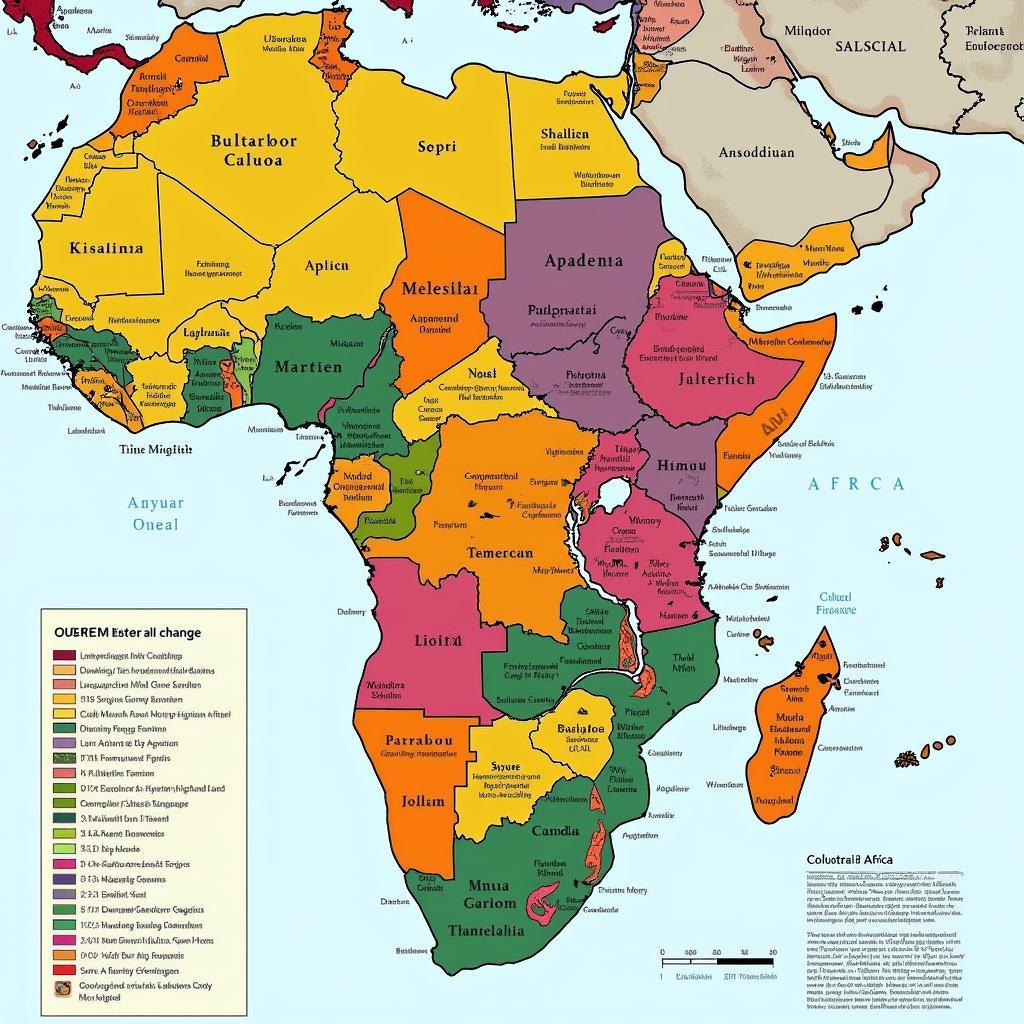Exploring the World of African Cough Syrup: Traditional Remedies and Modern Uses
African Cough Syrup has long been a part of traditional medicine practices across the continent, with roots stretching back centuries. This article delves into the world of African cough syrups, exploring their diverse origins, ingredients, and potential benefits. We will uncover the fascinating history of these remedies, shedding light on how they have been used to alleviate respiratory ailments and contribute to overall well-being.
What is African Cough Syrup?
African cough syrups are liquid preparations traditionally used for treating coughs, colds, and other respiratory conditions. They are typically made from a blend of natural ingredients sourced from plants, herbs, and roots native to the African continent. These ingredients are often carefully selected based on their perceived medicinal properties and their ability to soothe the throat, loosen phlegm, and alleviate respiratory discomfort.
A Journey Through History: Origins and Evolution of African Cough Syrup
The use of herbal remedies for respiratory ailments dates back to ancient times in Africa. Traditional healers and communities have long relied on plants for their therapeutic properties, with knowledge passed down through generations. These practices are deeply intertwined with African culture, history, and traditions.
Ancient Roots of African Cough Syrup:
“Africa has a rich history of using plants for medicinal purposes,” explains Dr. Amina Hassan, a renowned ethnobotanist at the University of Nairobi. “Cough syrups, in particular, have been a staple in African medicine for centuries. Our ancestors carefully studied the properties of plants and developed unique remedies that were effective in treating respiratory ailments.”
Exploring the Ingredients of African Cough Syrup
The ingredients used in African cough syrups vary widely depending on the specific region, cultural traditions, and availability of resources. However, certain common ingredients have been consistently utilized across the continent.
Common Ingredients:
- Honey: Honey is a natural sweetener that has been used for centuries as a soothing agent and cough suppressant. Its antibacterial properties may also help fight infection.
- Ginger: Ginger root is known for its anti-inflammatory and expectorant properties. It can help soothe the throat and loosen mucus.
- Lemongrass: Lemongrass has a natural anti-inflammatory and antiseptic effect. It can help reduce congestion and promote respiratory comfort.
- Eucalyptus: Eucalyptus leaves are prized for their decongestant and antibacterial properties. They are often used to alleviate coughs and clear respiratory passages.
- African Basil: This fragrant herb has been used for centuries in traditional medicine for its potent anti-inflammatory and analgesic properties, often used in cough syrups to soothe throat irritation and inflammation.
The Potential Benefits of African Cough Syrup
While scientific evidence for the efficacy of African cough syrups is still emerging, traditional knowledge and anecdotal evidence suggest they may offer several benefits for respiratory health.
Possible Benefits:
- Cough Relief: African cough syrups are believed to soothe the throat, loosen phlegm, and alleviate coughing.
- Congestion Relief: Some ingredients, like eucalyptus and ginger, have decongestant properties that may help open up airways and reduce congestion.
- Anti-Inflammatory Action: Certain herbs, such as ginger and African basil, possess anti-inflammatory properties that may help reduce throat irritation and inflammation.
- Antimicrobial Action: Honey and eucalyptus are known for their antimicrobial properties that can help fight bacterial infections.
Modern Perspectives on African Cough Syrups
In recent years, there has been growing interest in traditional African remedies, including cough syrups. This has led to increased research efforts to evaluate their safety and effectiveness. While some studies have shown promising results, more research is needed to fully understand the mechanisms of action and potential benefits of African cough syrups.
Safety Considerations:
It’s important to note that the safety and efficacy of African cough syrups can vary depending on the specific ingredients used, preparation methods, and individual sensitivity. Consulting with a healthcare professional is essential before using any traditional remedy, especially for children, pregnant women, or individuals with existing medical conditions.
Cultural Significance and Traditional Knowledge
Beyond their potential health benefits, African cough syrups hold immense cultural significance. They represent a rich legacy of traditional knowledge, passed down through generations, that reflects the interconnectedness between humans and nature. These remedies are not just about treating coughs; they are about preserving cultural heritage and honoring ancient healing practices.
Preserving Cultural Heritage:
“African cough syrups are more than just a remedy,” states Dr. Hassan. “They are a testament to the wisdom and resilience of our ancestors. By using these remedies, we are honoring their legacy and ensuring that traditional knowledge continues to thrive.”
FAQ
Q: Are African cough syrups safe for everyone?
A: While African cough syrups are generally considered safe for healthy adults, it’s crucial to consult with a healthcare professional before using any traditional remedy. Certain ingredients may interact with medications or trigger allergies.
Q: Where can I find African cough syrups?
A: African cough syrups can be found in traditional markets, herbal shops, and some health food stores. Online retailers may also offer these remedies.
Q: What are some popular African cough syrup brands?
A: Some popular brands include [insert popular brand names] and [insert other popular brand names]. However, the availability of these brands may vary depending on the region.
Conclusion
African cough syrups represent a fascinating intersection of traditional medicine, culture, and modern science. While further research is needed to fully understand their efficacy and safety, their potential health benefits and cultural significance are undeniable. These remedies offer a glimpse into the vast world of African healing traditions and the enduring wisdom of the continent.
Remember to consult with a healthcare professional before using any traditional remedy, and always prioritize safety and informed decision-making when exploring the world of African cough syrups.


